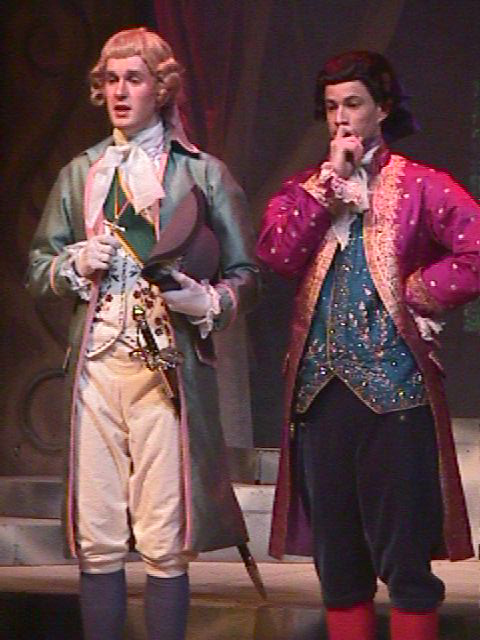How possible can I use this directory, beside the archive, of course?
Dangerous Liaisons @ Amazon (DVD)
World Events Surrounding The Publishing of Les Liaisons Dangereuses:
1776 -- American Declaration of Independence
... DiGaetani: Chekhov certainly has that wonderful skepticism, and you have written some wonderful adaptations of his plays. A recurrent theme that I find in your works is the connection of love and sexuality with sadism. Sadomasochistic relationships recur in your plays. I was thinking of two plays: Les Liaisons Dangereuses, in which there is a sadism in this couple's desire to ruin other people, and Total Eclipse.
Hampton: That's interesting. Laclos was an exact contemporary of the Marquis de Sade, and in the course of my university studies I read a lot of those terrible books by Sade. I think Sade's view of sex is extremely reactionary and disagreeable -- not only for the obvious reasons, but also he was one of those intellectuals who followed an idea to its extreme, beyond sense and into insanity. Laclos and Sade are completely different. Laclos's novel is a profound study of the differences between sexuality and love; however, it acknowledges the existence of love.
DiGaetani: To me the novel is also in part about the fear of intimacy.
Hampton: It deals truthfully with all these things. The virtuous characters in Sade are simply puppets to be desecrated. Madame de Tourvel is not like that at all. She represents a healthy center of things and even Valmont understands that in the end. He's too far gone to be rescued by it, but he does understand it.
DiGactani: In many ways his ending is actually suicidal.
Hampton: That's right. That was John Malkovich's invention -- the scene when he drops the sword.
DiGactani: Rickman did it too in New York. He did it more subtly, but he too communicated to me anyway that he wanted to die. Also in your play Total Eclipse the relationship between Verlaine and Rimbaud is certainly sadomasochistic.
Hampton: As it was in actuality. Total Eclipse is a play that means a lot to me; it's the play that I consider my first genuine piece of work. I took a year off from university to live in Paris and wrote the play there. The subject of the play is what does it mean to be a writer? What does it involve? The play explores these two kinds of writers who came from opposite ends of literature. One represented a kind of extremism which has its attractions, and the other writer was, let us say, a professional.
DiGaetani: That was Verlaine.
Hampton: Yes. The extremist burns himself out in about three years and he's asking literature to do things it is not equipped to do. The professional goes on working. The curious thing that happened to me in the course of working on the play is that I began the play in Rimbaud's position and ended it in Verlaine's.
DiGactani: You're a married man, and with children, like Verlaine.
Hampton: Not in a personal point of view so much as in being aware of what being a writer would entail.
DiGaetani: Your plays sometimes work with a strange connection between love and sexuality on the one hand and cruelty on the other.
Hampton: There are some historical connections here as well. Until 1968 we had censorship in the theater here in England. Censorship was abolished at the end of September of 1968 and Total Eclipse opened at the Royal Court Theater on September 11, 1968. The police were there on the first night. We had had a great deal of trouble in getting a license for the play. We had to make cuts in the play, and the police came in to make sure we had made those cuts. Halfway through the run of the play, and it ran for only three weeks, the law was repealed. So for the second half of the run we restored these cuts. So historically I and my generation of writers were interested in exploring topics that previously had not been allowed to be explored in the theater -- shining lights into various dark corners. I suppose I wouldn't be doing that unless I were interested in it in some way myself, but there is an historical reason for those preoccupations at that particular time.
[ pp.133-134. intro ]
©2006 Fall:
2007 Spring:



